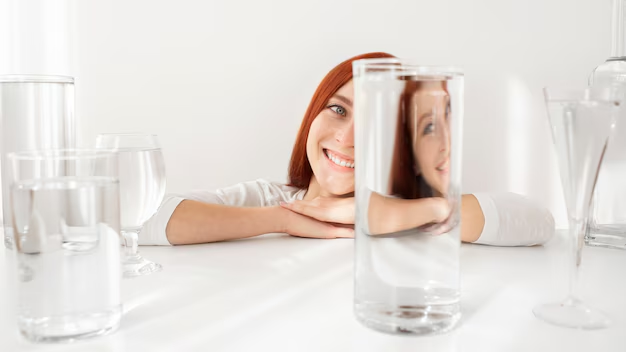The Importance of Hydration Water is essential for nearly every function in our body. From keeping our organs working efficiently to boosting energy and focus, hydration is a fundamental aspect of overall health. However, many people underestimate its importance and often don’t drink enough water throughout the day. In this blog, we’ll explore the importance of hydration, its role in physical and mental well-being, and practical ways to stay properly hydrated.
Why Hydration is Essential for Health
- Water as the Body’s Primary Component:
- Water makes up around 60% of the human body and plays a key role in numerous physiological functions, including digestion, circulation, and temperature regulation.
- Our organs, tissues, and cells rely on water to carry nutrients, flush out waste, and keep the body in balance.
- Hydration and Homeostasis:
- Homeostasis is the body’s ability to maintain a stable internal environment, which is crucial for overall health.
- Hydration helps regulate body temperature, blood pressure, and electrolyte balance, ensuring that cells function optimally.
The Physical Benefits of Staying Hydrate
A. Improved Physical Performance
- Explanation: Water is essential for maintaining muscle strength, endurance, and flexibility.
- How It Helps:
- Staying hydrated allows muscles to perform at their peak by reducing fatigue, lubricating joints, and preventing cramps.
- For athletes and those engaging in physical activity, dehydration can lead to decreased performance and increased risk of injury.
B. Boosted Energy Levels
- Explanation: Dehydration can lead to feelings of tiredness and low energy as the body struggles to perform basic functions.
- How It Helps:
- Drinking water throughout the day keeps the body energized and can reduce feelings of fatigue.
- Even mild dehydration can affect mood and energy levels, so hydration is essential for maintaining stamina and focus.
C. Better Digestion and Nutrient Absorption
- Explanation: Water aids in the digestion process and supports the body’s ability to absorb nutrients from food.
- How It Helps:
- It assists in breaking down food and ensures smooth movement through the digestive system, preventing constipation.
- Staying hydrated supports the efficient transport of vitamins, minerals, and other nutrients, making sure your body reaps the benefits of a balanced diet.
D. Supports Kidney Function and Detoxification
- Explanation: The kidneys filter waste from the blood, and water is essential in flushing these toxins out.
- How It Helps:
- Proper hydration promotes kidney health and prevents the formation of kidney stones.
- By drinking enough water, you help your body flush out harmful substances and maintain a healthy balance of electrolytes.

The Mental Benefits of Staying Hydrated
A. Enhanced Cognitive Function
- Explanation: The brain is highly sensitive to hydration levels, with dehydration affecting concentration, memory, and alertness.
- How It Helps:
- Hydration supports brain functions like focus, learning, and problem-solving.
- Studies have shown that even mild dehydration can lead to decreased cognitive performance, especially in tasks requiring high mental concentration.
B. Mood Regulation
- Explanation: Dehydration can lead to irritability, anxiety, and mood swings, affecting emotional well-being.
- How It Helps:
- Drinking water has been linked to improved mood, as it prevents the physical strain that dehydration places on the body.
- Hydration supports mental stability by providing the brain with what it needs to function optimally, which in turn can enhance feelings of calm and positivity.
C. Improved Sleep Quality
- Explanation: Proper hydration can contribute to better sleep by regulating body temperature and reducing muscle cramps.
- How It Helps:
- Staying hydrated during the day helps you relax at night, as dehydration can lead to nighttime cramps, dry mouth, and other discomforts.
- It’s essential to avoid drinking too much water right before bed to minimize nighttime bathroom trips, but good hydration throughout the day can improve sleep quality.
Signs of Dehydration
- Thirst: Thirst is often a late indicator of dehydration, so drinking water before you feel thirsty is essential.
- Dry Skin and Lips: Dehydration can cause skin and lips to feel dry or cracked, as the body has less water to keep tissues hydrated.
- Headaches and Dizziness: Dehydration affects blood flow, which can lead to headaches, light-headedness, or even confusion in severe cases.
- Dark Urine: Urine color is an effective indicator of hydration. Dark yellow or amber urine can signal dehydration, while clear or light yellow urine usually indicates adequate hydration.
Practical Tips for Staying Hydrated
A. Make Water Part of Your Routine
- Carry a Water Bottle: Keeping a water bottle with you is a simple reminder to drink regularly.
- Set Hydration Goals: Aim for at least 8 cups (64 ounces) a day, though individual needs may vary based on factors like activity level and climate.
B. Eat Hydrating Foods
- Water-Rich Fruits and Vegetables: Foods like cucumbers, oranges, watermelon, and strawberries have high water content and contribute to hydration.
- Soups and Smoothies: These can be excellent additions to your diet as they provide both hydration and essential nutrients.
C. Use Reminders to Drink Water
- Set Timed Reminders: Phone apps and alarms can remind you to take sips of water regularly.
- Drink a Glass of Water with Each Meal: Making it a habit to drink water before or with meals can help you stay hydrated consistently.
D. Customize Your Water
- Add Natural Flavors: Enhance the flavor of water by adding fruits, herbs, or cucumber slices.
- Choose Electrolyte Beverages When Needed: For intense exercise or hot climates, electrolyte drinks can replenish minerals lost in sweat and support hydration.
Special Considerations for Hydration
A. Hydration for Athletes and Active Individuals
- Explanation: Athletes need more water to compensate for fluid lost through sweat and physical exertion.
- Tip: Drink water before, during, and after exercise. For intense or prolonged exercise, an electrolyte-replenishing drink can be beneficial.
B. Hydration for Different Age Groups
- Children and Teens: Proper hydration supports growth, development, and cognitive function, which are essential during school and physical activities.
- Older Adults: As we age, the body’s thirst signals become weaker, making it easy for older adults to become dehydrated. Regular hydration helps with joint health, digestion, and cognitive function.
C. Hydration in Different Climates
- Hot Climates: In warmer weather, drink more frequently to compensate for fluid lost through sweat.
- Cold Climates: In cold weather, people often forget to drink water, but staying hydrated is just as crucial, especially for energy and skin health.

Common Myths About Hydration
- Myth: You Only Need to Drink Water When Thirsty:
- Thirst isn’t always a reliable signal of dehydration, especially for active individuals or older adults.
- Myth: All Fluids Hydrate Equally:
- While beverages like tea and coffee contribute to fluid intake, caffeine can have a diuretic effect, so they shouldn’t replace water entirely.
- Myth: Drinking Lots of Water Quickly Rehydrates:
- Drinking too much water at once can be counterproductive. Sipping consistently throughout the day is more effective for staying hydrated.
Conclusion
Hydration is one of the simplest yet most impactful elements of health. By drinking enough water and incorporating hydrating foods, you can support your physical, mental, and emotional well-being. Remember that hydration isn’t a one-size-fits-all approach; it’s essential to adjust your intake based on your individual needs, activity level, and environment. With a few mindful changes, you can make hydration a priority and experience the numerous health benefits it brings. So grab your water bottle, and start making hydration a habit for a healthier, more energized life!

